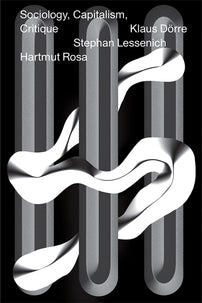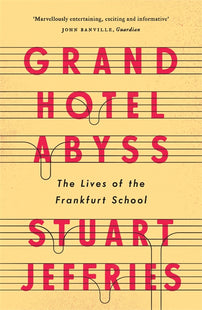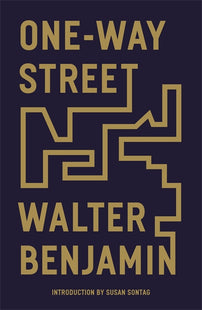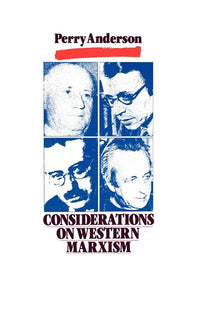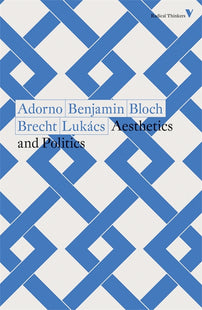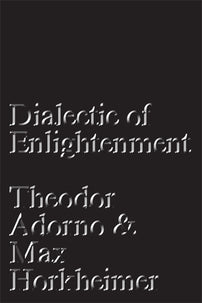100 Years of the Institute for Social Research
An interview with director of the Institute for Social Research, Stephan Lessenich, about the tradition and future of a critical theory of society.

Alex Struwe: Herr Lessenich, you took over as director of the Institute for Social Research (IfS) just under a year and a half ago and recently marked the start of its 100th anniversary. What does this occasion mean to you?
Stephan Lessenich: In terms of everyday practice, the anniversary marks the point at which the building is once again open to the public after a long hiatus. After the restrictions imposed by the pandemic, events are now taking place here again, as well as a regular working day. Up until three or four months ago, much of the work was almost exclusively online. This is an important moment for an institute that works at the interface of academia and the public, of research and teaching, of reflection on society and interactions with social actors.
And then, of course, the centenary is itself a big occasion with a lot of public and media attention. Admittedly, the real mystique of the institute dates back to the 1950s and 60s; interest in it usually ends in 1969 with the death of Theodor W. Adorno and then skips forward to the present as a matter of protocol. Nevertheless, this history gives the event a certain weight and creates pressure – especially for me, who is responsible for the program development of the institute and also for its academic success. Our donors and cooperation partners were invited to a ceremony and naturally want to know what’s going on here and where it is headed. I’m pleased about the interest and the support. But at the same time, when it comes to the matter and the actual intention of critical social research, I can’t be overly cordial. After all, the work here means not just keeping things going, but interrupting their usual course – as far as that is possible.
[book-strip index="1" style="buy"]Particularly on the occasion of the anniversary, there is talk of the "legendary institute" and its "hallowed halls." What is your opinion of the myth of the Institute for Social Research?
I don't think much of the myth. Not that the appreciation of the achievements of individual institute members is unjustified. But the mystification is of little help in the task of understanding social conditions today and translating intellectual critiques of power into research. For our concrete work here, the myth is a burden – even if it’s also the institute's greatest asset. But deference should not be paid to it. Because we also have to point out where the gaps were: for instance, in the relationship of critical intellectuals to political practice or in gender relations. In the media's historiography of the institute, no major personality of non-male gender appears.
Under your directorship there has been a kind of paradigm shift. You could say it has gone from a philosophy of recognition to a sociology of participation. How would you describe this change and your program at the institute?
It's interesting that it comes across that way. It presupposes, of course, that the individual directors can be equated with the entire research program of the institute and that the institution can be identified with the person. With the previous director of the institute, Axel Honneth, one associates a philosophical critique of normative paradoxes of modernity, with me then the political sociology of participation. But yes, a critical sociology that goes beyond the national-societal framework and thinks micro and macro events in conjunction with each other: if you ask me, that's exactly my thing.
Of course, my work has to be reflected in the institute's research program; it can't develop independently of it. But I don't intend to try to align the staff with my own research interests as if with a magnet. We’re currently going through a rather elaborate, horizontal process of research program development. In the process, we’re really trying to bring together a wide variety of impulses – from different disciplines and background experience, for example – into one program. But that shouldn't become arbitrary or just add up to the sum of the various parts.
[book-strip index="2" style="buy"]The early IfS developed its theoretical framework on the basis of a double diagnosis of the crisis of society and the crisis of Marxism, the theory that claimed to grasp and overcome these crises. In 1931, the director Max Horkheimer drew from this the programmatic "Tasks of the Institute for Social Research". What are the tasks today?
Exactly the same.
Exactly the same?
Exactly the same – at least structurally. We still live in a society that systematically produces suffering, unnecessary suffering, for the majority. It is critical-theoretical elementary knowledge that bourgeois society systematically falls short of the objective possibilities of human liberation. For all its productivity and expansion of spaces of possibility, the capitalist-democratic model of society also produces the opposite: exclusion and destructiveness. Critical theory has always emphasized this dark side, insisting above all that the whole is man-made. The whole state of affairs is an artifact of social processes, disputes, conflicts, struggles, and must not be naturalized in any way. It is not simply a system, but real actors with real interests are involved in shaping the social struggles whose outcome is present society.
The underlying guiding question of the research program must therefore be: how is it possible that this society ultimately continues to pursue the same operational mechanisms of valorization of capital, destruction of nature, destruction of social relations, and that the whole thing is still legitimized? Of course, people are interwoven into these relations in different positions of power, which helps to explain the matter. But then it still has to be understood empirically how this persistently crisis-producing society remains relatively stable.
Here it is often replied that critical theory is still talking about ‘late capitalism’. When would this come to an end? Would we then at some point live in ‘latest’ or ‘final’ capitalism?
[book-strip index="3" style="buy"]It is true that the social form of capitalism has exhausted itself in a certain way, but capitalism goes on living even after its exhaustion. And this afterlife causes suffering to many, many people across the world. In this country it produces exhaustion in people; elsewhere much worse.
For me, this is the same structural question as a hundred years ago: what character traits and social types, what forms of organization of the social, what institutional preconditions are there for fascism to come to power, for it to persist? To what extent can Germany – to this day – be understood as a post-fascist society? The threat to democracy, the destructive power of the economic system and the crisis of social relations are still manifest today.
On the occasion of the anniversary, many are emphasizing how thoroughly topical the older critical theory is. This surprises me somewhat, since for decades it was considered outdated. Jürgen Habermas once linked critical theory to the mood of the times during World War II, the assumption of a social totality was often disputed, and social contradictions were translated into paradoxes, for example. What has become of these reservations about the Marxist tenets?
This is precisely the point where I admit to being orthodox. In various respects, the core concepts of the older critical theory are, in my opinion, quite viable. But if they are to be taken up again, then only by incorporating the criticisms of them, both from one's own camp and from outside. Depending on which list of Marxist core concepts of critical theory one chooses – contradiction, crisis, exploitation, alienation are promising candidates – these would have to be put to the test. And it would be the task of a research program to show exactly where the contradictions are and to analyse exactly what their dimensions and dynamics are. Not much is gained by merely noting a social antagonism, and certainly not by asserting the principle contradiction to be that between capital and labour. One must understand the intersecting, interacting, contradictory constellations more precisely.
Exploitation, for example, I would say, is still a very central concept for understanding this society. And there are also interesting efforts outside the institute to reconstruct the concept of exploitation for a society that is no longer centrally oriented along the capital-labour axis. Exploitation can also affect vulnerable positions in this society which are not primarily wage-dependent positions but which are indirectly instrumentalized for the production of surplus value – be it Eastern European care workers, who provide informal care services in private households, or civically engaged people, whose activities carry out the social infrastructure tasks of the state.
[book-strip index="4" style="buy"]Another objection, almost a commonplace, against Critical Theory is its pessimism, for instance when there was talk of ‘total delusion’ and ‘the false whole’. You, by contrast, say that this negativity is appropriate.
Yes, negative conditions also require a negativity of positioning. A form of socialization that produces so much suffering and destruction first needs a radical negation of the conditions it establishes. But the question is whether to stop there or not. No critical theory can take up a radical positivity or optimism vis-à-vis the prevailing conditions. Nor did Habermas or Honneth demand this with their critique of the negativity of the older critical theory, even if one cannot deny a certain inclination toward social democracy on their part. The danger, of course, is just that: if one wants to distance oneself from an unproductive negativity, this can turn into an affirmation of what exists. In which case only a gradual modification of present conditions is conceivable.
But even in the older critical theory, negativity was always associated with a prospect of change. Negativity testified to the fact that society systematically falls short of its possibilities for emancipation, self-organization and solidarity. This is still the case today. This is why a critical theory cannot abandon negativity and must reckon with being reduced to it in public perception. However, even the great representatives of critical theory – for example, Adorno as a radio sociologist and public intellectual – didn’t merely broadcast depressing news over the airwaves, but always sought out pointers for a different organization of society too.
The crucial thing is not that there is no demand for change. The realization that things can't go on like this is now widespread. But things go on nevertheless. Walter Benjamin once said, "the fact that things just go on like this is the catastrophe." But how is it possible that things just go on like this? Just by asking this question, one gets into more positive waters. Ideally, the manifold driving forces and preconditions for things to go on like this, even though they cannot actually go on like this, become visible. Therein lies the embryonic idea of something different, the idea that something else is possible.
Critical theory dealt with the conditions of possibility of emancipation. But the fact that it was thrown back on theory in the process was itself an expression of defeat or impotence. At least that's how Perry Anderson put it in his essay on "Western Marxism," for the new edition of which you are writing the afterword. Anderson famously expressed the reservation against critical theory that it was too bourgeois and had betrayed the revolution and the working class. How does a critical social theory relate to political practice?
Of course, a critical theory is situated in the dominant political contexts of bourgeois society, as is the practice it criticizes. In fact, there was a distancing of critical theory from praxis, a kind of abyss between political or revolutionary-oriented praxis and theoretical reflection. And for good reasons: theory cannot be dissolved in praxis. But this abyss also had a habitual and biographical dimension, which then became apparent, for example, in the alienation of the student movement from Adorno, that the latter arranged for the eviction of the occupied institute in 1969, or the hoopla surrounding the "bosom attack" with which Adorno's lecture was disrupted. The discrepancy between critical theory and radical practice always bore the signature of the historical period.
[book-strip index="5" style="buy"]For these reservations about Critical Theory, the Marxist philosopher Georg Lukács chose the image of the "Grand Hotel Abyss" – that is, a luxuriously furnished position in a bourgeois world close to catastrophe ...
There is always a grain of truth to such polemics. If you look at recordings from earlier times, for example, you get the impression that certain actors of the older Critical Theory were indeed living in their own bubble. That was a programmatic reclusiveness that was quite intentional.
You counter this with a "Petite Auberge Aufbruch," the little hostel of new beginnings. What do you mean by that?
Well, today there can be no talk of a Grand Hotel of theoretical reflection. Nor is milk and honey exactly flowing here at the institute. Apart from the director, perhaps, no one here is privileged. We live in the age of the entrepreneurial university and work under the same business and competitive constraints as everyone else in the academic world. And it is hard to say that the academics working at the university, most of whom are employed under precarious working conditions, are complacent. Certainly, there are forms of false consciousness here as well, a bourgeois and relatively secure way of life that would not easily be given up for a supposedly revolutionary project – especially since it would be strange to demand this as a measure of political merit. Nevertheless, the motivation of all those who work at the institute under the given circumstances is the intellectual proximity to the concerns and projects of critical theory. Despite all bourgeoisification or integration into existing structures, this basic stance can certainly be mobilized for a new beginning, at least by reviving certain scientific-political practices that have been absent from German universities for a long time.
Because I believe that today – in completely different generational contexts, with completely different figures, types and backgrounds involved in political activism – it must also be about narrowing the gap between theory and practice again. Theory doesn’t burn its fingers when it approaches political practice. There, I think, even habitual things play a big role. I don't usually walk around dressed as formally as I do, for example, for the institute's ceremonial act. Of course that wouldn’t meet Perry Anderson’s criteria for narrowing the gap to political movements – neither in his time nor later – but it is nevertheless a symbol of a changed praxis.
In this context, there’s also the idea that connects the institute with the second Marxist Work Week, which will take place at Pentecost this year (the first, in 1923, included Lukàcs, Korsch, Friedrich Pollock and Felix Weil and laid the foundations for the Frankfurt School). It is not meant to be a retreat where we just exchange ideas among ourselves and develop our own ingenious plans. What we’re actually looking for is a confrontation with the social and political actors of our time, in order to work on the questions at hand in critical dialogue: What, then, are problematizations that do justice to the present, and what do they mean for a critical-theoretical research program? Such a task is not least required by the social situation. And for that very reason it is also possible.
[book-strip index="6" style="buy"]Having supposedly betrayed the subject of the working class, the left then suffered for a long time from the fact that it could no longer address any revolutionary subject at all. Who is the subject of political change? To whom is the distance to be reduced?
Good question. But in this regard, I would always ask in return: was it really the subject of the working class that was betrayed? In the perception of the actors and also of theory, it may have appeared that way, but even then there were probably even more potentially betrayed subjects than the working class, which was male-dominated in all its practices and activities. This subject did not fall from the sky, it was already the result of a theoretical reduction. There were good historical-empirical reasons for this, but this reduction of the social question to the workers' question is nevertheless a positing. And perhaps the failure to mobilize this historical subject is also connected with the narrowing of analysis in scientific Marxism.
In this respect, I’m not sure whether the revolutionary subject of transformation is really so much more difficult today than it was then. It can hardly be denied that we live in more complex social conditions with a higher degree of individualization, a multitude of subjectification effects and an almost unfathomable constellation of social divisions. But it is misleading and also inhibits political practice to claim that there were only two classes back then, and that even in these simple conditions the transformation did not work out – and how then today, in this plurality of identities?
You have already mentioned the reality of the academic world of third-party funding and dependence on grants. To what extent can your claim of a critical social theory be realized at all in this situation?
Only approximately, of course. It is absolutely clear that we fall far short of the ideal of a solidarity-based and transformative research network, that we must fall short. And it is equally clear that we need a research program that ultimately brings money into the institute too and does not preclude being seen as an acceptable scholarly actor for public funding. But under the given circumstances – not only in the university but in my opinion everywhere in social life – we have to make use of the positions and opportunities that allow us to do things differently. And the opportunities are not so limited at the institute, thanks to the symbolic capital alone. And who knows what ramifications and dynamics one's own practice will have in a chaotic society?
There's a joke that Habermas' contribution to critical theory was merely to have got the traffic lights installed at the old university campus in Bockenheim that Adorno had once demanded for student safety. As director of the institute, what do you want to be remembered for?
Well, I've already had the railing of the roof terrace fixed – that should be as relevant as the traffic lights in terms of the safety of those working with their heads (laughs). But what I really want to stand for is opening up the building. This applies to the student body, which should once again perceive the institute as a place of intellectual debate, as well as to the university as a whole, where the IfS should be more visible. For years, it was hardly visible at all. But it also applies to an interested, non-academic public. And finally also for civil society and political actors, for whom what happens at the institute should be relevant, something they cannot overlook, something they have to deal with. Even if only in the sense that they oppose it.
[book-strip index="7" style="buy"]Interview: Alex Struwe, first published in Neues Deutschland, 30.1.23. Translated by Adrian Wilding
Prof. Dr. Stephan Lessenich has been director of the Frankfurt Institute for Social Research since 2021 and is also professor of Social Theory and Social Research at the Goethe Universität Frankfurt am Main. His most recent book is »Nicht mehr normal. Gesellschaft am Rande des Nervenzusammenbruchs« ("No Longer Normal: Society on the Verge of a Nervous Breakdown") published by Hanser-Verlag, Berlin.

